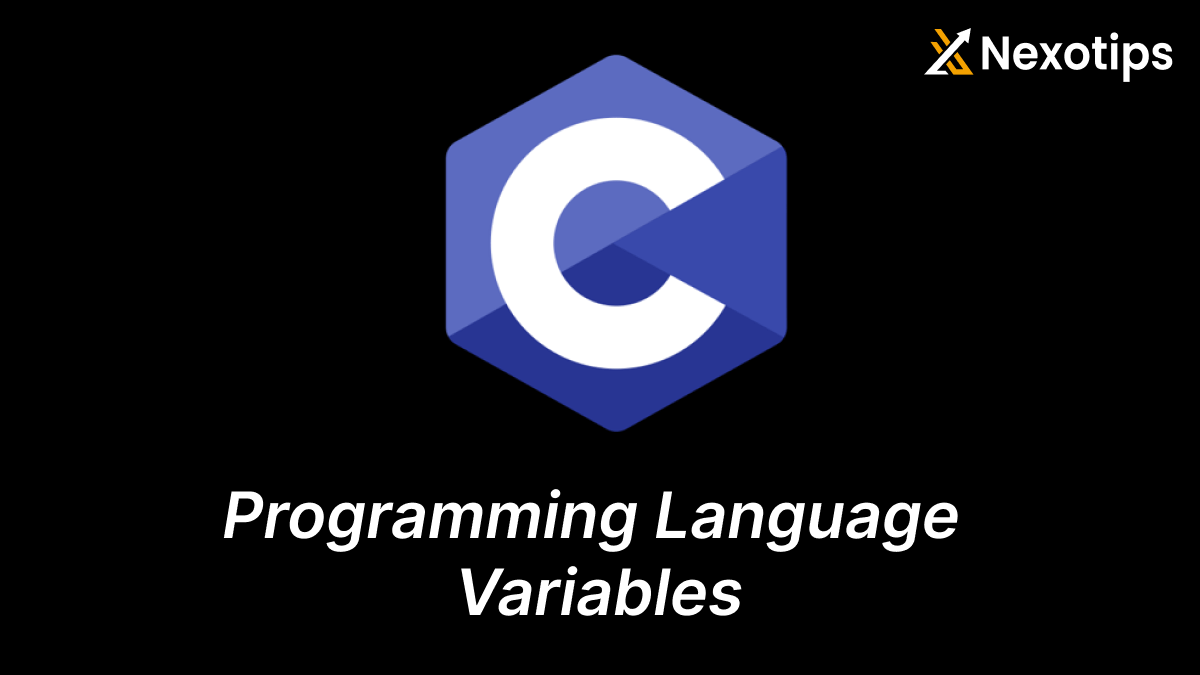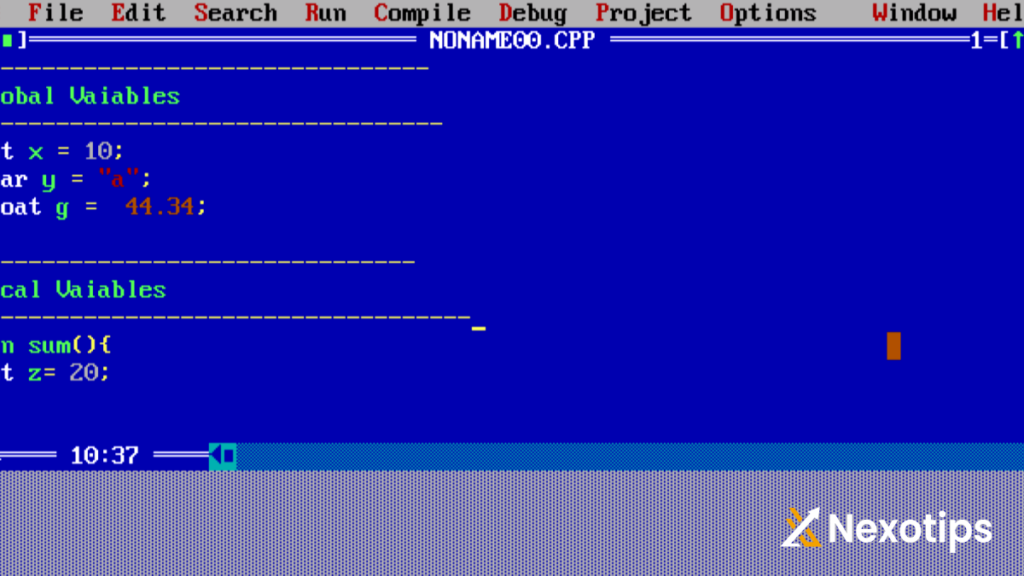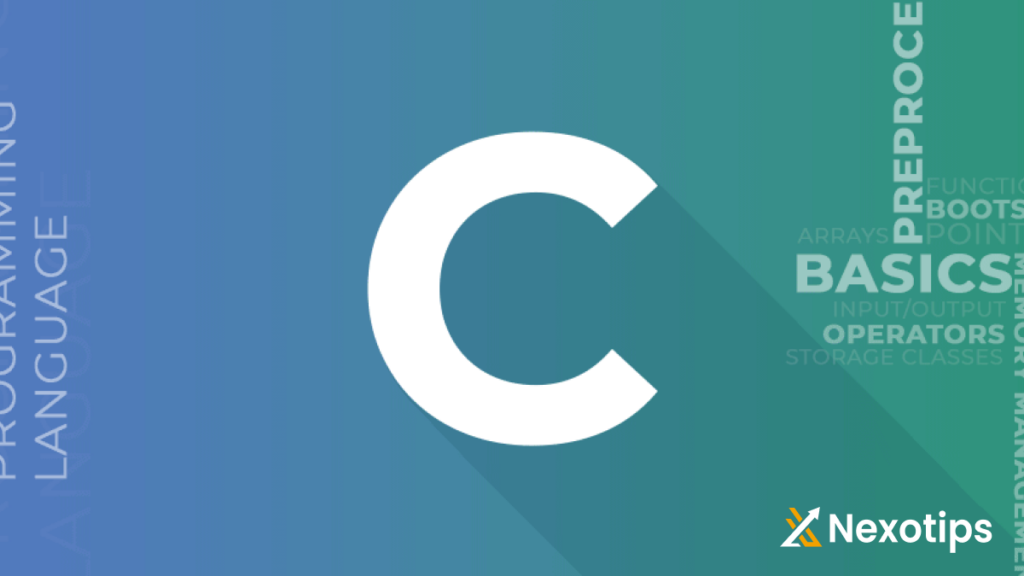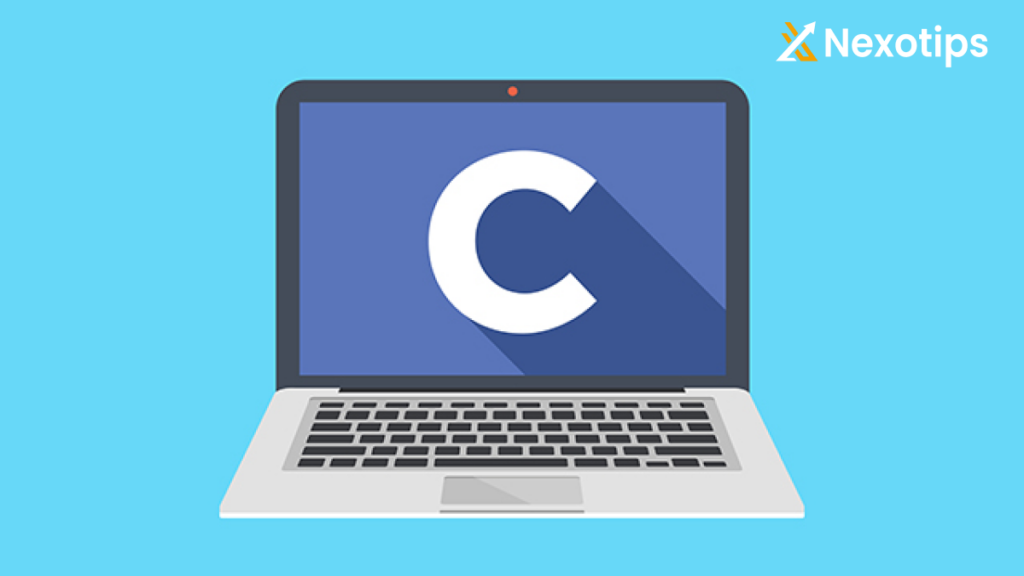
C Variables: 9 Best Key Points to Understanding Variables in C Programming
C programming is one of the foundational languages that form the backbone of modern software development. It’s known for its efficiency and control over system resources, making it a favorite among system programmers and developers working on performance-critical applications. A core concept in C, as with any programming language, is the use of variables. This comprehensive guide will explore the intricacies of C variables in C programming, including their declaration, types, scope, and best practices.
Index.
1. Introduction to C Variables
In programming, a variable is a storage location identified by a memory address and a symbolic name (an identifier), which contains some known or unknown quantity of information referred to as a value. In C, variables are the fundamental building blocks used to store data for processing.
C Variables are essential for:
- Storing data values
- Manipulating and controlling data flow
- Enhancing code readability and maintainability

2. Variable Declaration and Initialization
Declaration
In C, a variable needs to be declared before it can be used. Declaration involves stating the variable’s type and name. The syntax for declaring a variable is straightforward:
type variable_name;For example:
int age;
float salary;
char grade;Initialization
Assigning a value to a variable at the moment of declaration is known as initialization. This step is crucial to avoid undefined behavior due to the usage of uninitialized C Variables.
int age = 25;
float salary = 50000.50;
char grade = 'A';You can also declare multiple variables of the same type in a single line:
int a = 1, b = 2, c = 3;3. Types of C Variables
C provides a variety of data types to suit different needs. These can be broadly categorized into primitive data types and derived data types.
Primitive Data Types
- int: Used to store integers. Size typically is 2 or 4 bytes.
int number = 10;- float: Used to store single-precision floating-point numbers. Size is typically 4 bytes.
float pi = 3.14;- double: Used for double-precision floating-point numbers. Size is typically 8 bytes.
double largePi = 3.141592653589793;- char: Used to store a single character. Size is 1 byte.
char letter = 'A';- _Bool: Used to store Boolean values (true/false). Size is 1 byte.
_Bool isTrue = 1; // 1 represents true, 0 represents falseDerived Data Types
- Arrays are collections of identically typed elements kept in a row in memory.
int numbers[5] = {1, 2, 3, 4, 5};- Pointers: C Variables that store the memory address of another variable.
int *ptr;- Structures: User-defined data types that allow grouping of C Variables of different types.
struct Person {
char name[50];
int age;
float salary;
};- Unions: Similar to structures but with all members sharing the same memory location.
union Data {
int intValue;
float floatValue;
char charValue;
};
4. Scope and Lifetime of Variables
The scope and lifetime of a variable determine where it can be accessed and how long it stays in memory.
Local Variables
Local variables are declared inside a function or block and can only be accessed within that function or block. They are created when the block is entered and destroyed upon exiting the block.
void function() {
int localVar = 10; // Local variable
}Global Variables
Declared externally to every function, global variables are accessible to every function in the program. They have a program-wide scope and exist for the duration of the program.
int globalVar = 100;
void function1() {
printf("%d", globalVar);
}
void function2() {
printf("%d", globalVar);
}Static Variables
Static variables can be local or global. A local static variable retains its value between function calls. A global static variable limits its scope to the file in which it is declared.
void function() {
static int staticVar = 0;
staticVar++;
printf("%d", staticVar);
}In this example, staticVar will retain its value between multiple calls to function.
5. Constants and Literals
Constants are immutable values that do not change during program execution. They can be defined using the const keyword or #define preprocessor directive.
Using const Keyword
const int daysInWeek = 7;Using #define
#define PI 3.14The real values that are assigned to variables or constants are known as literals. For example, 3.14 in float pi = 3.14; is a floating-point literal.
6. Type Qualifiers
Type qualifiers in C add more meaning to the variables. The most commonly used type qualifiers are const, volatile, restrict, and register.
- const: Specifies that the variable’s value cannot be modified.
const int constantVar = 10;- volatile: Informs the compiler that the variable can be changed at any time, without any action being taken by the code.
volatile int timer;- restrict: A pointer qualifier that suggests the object pointed to is accessed only through that pointer.
int * restrict ptr;- register: Suggests that the variable be stored in a CPU register for faster access.
register int counter;7. Best Practices for Using Variables in C
Meaningful Names
Give your variables sensible names that correspond to their functions.
int employeeAge;
float productPrice;Initialization
Always initialize variables before use to avoid undefined behavior.
int total = 0;Minimize Scope
Limit the scope of variables as much as possible to enhance readability and maintainability.
void function() {
int localVar = 10;
}Avoid Global Variables
Use global variables sparingly as they can lead to code that is hard to debug and maintain.
Comment Your Code
Add comments to explain the purpose of variables, especially if their purpose isn’t immediately clear.
// Employee's age in years
int employeeAge = 30;Use Constants
Use constants instead of magic numbers to make your code more readable and maintainable.
const int DAYS_IN_WEEK = 7;
8. Common Mistakes and How to Avoid Them
Uninitialized Variables
When variables are used without first initializing them, unexpected outcomes may occur.
int num;
// num is uninitialized and contains garbage value
printf("%d", num);Incorrect Scope
Accidentally using variables outside their intended scope can cause errors.
void function() {
if (true) {
int x = 10;
}
// x is not accessible here
}Overwriting Constants
Attempting to modify a constant variable results in a compilation error.
const int pi = 3.14;
pi = 3.1415; // ErrorPointer Issues
Mismanagement of pointers can lead to serious issues like segmentation faults.
int *ptr = NULL;
*ptr = 10; // Dereferencing a null pointer, leading to segmentation fault9. Conclusion
Variables are a fundamental aspect of programming in C, serving as the primary means of storing and manipulating data. Understanding how to declare, initialize, and utilize variables effectively is crucial for writing efficient and bug-free C programs. By adhering to best practices and being mindful of common pitfalls, you can harness the full power of variables to create robust and maintainable code.
Whether you’re a beginner learning the ropes of C programming or an experienced developer looking to refine your skills, mastering the use of variables is an essential step on your journey. Remember, variables are not just placeholders for data; they are the building blocks that bring your programs to life.
Other’s: C Programming: 5 Essential Tips For Mastering Output And Comments
